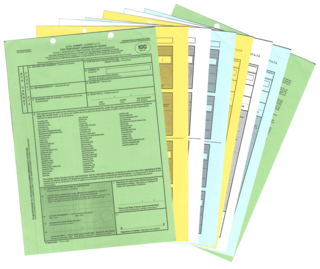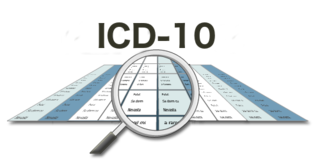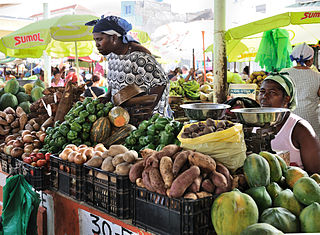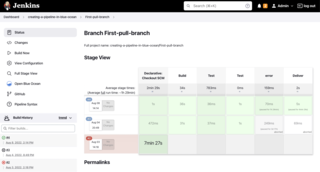Related Research Articles

Politics of Cape Verde takes place in a framework of a semi-presidential representative democratic republic, whereby the Prime Minister of Cape Verde is the head of government and the President of the Republic of Cape Verde is the head of state, and of a multi-party system. Executive power is exercised by the president and the government. Legislative power is vested in both the government and the National Assembly. The judiciary is independent of the executive and the legislature. The constitution, first approved in 1980 and substantially revised in 1992, forms the basis of government organization. It declares that the government is the "organ that defines, leads, and executes the general internal and external policy of the country" and is responsible to the National Assembly.

Guinea-Bissau, officially the Republic of Guinea-Bissau, is a country in West Africa that covers 36,125 square kilometres (13,948 sq mi) with an estimated population of 2,026,778. It borders Senegal to its north and Guinea to its southeast.

UN Trade and Development (UNCTAD) is an intergovernmental organization within the United Nations Secretariat that promotes the interests of developing countries in world trade. It was established in 1964 by the United Nations General Assembly (UNGA) as the United Nations Conference on Trade and Development but rebranded to its current name on the occasion of its 60th anniversary in 2024. It reports to both the General Assembly and the United Nations Economic and Social Council (ECOSOC). UNCTAD is composed of 195 member states and works with non-governmental organizations worldwide; its permanent secretariat is at UNOG in Geneva, Switzerland.

The Economic Community of West African States is a regional political and economic union of fifteen countries of West Africa. Collectively, the countries comprise an area of 5,114,162 km2 (1,974,589 sq mi) and have an estimated population of over 424.34 million.

A self-driving car, also known as an autonomous car (AC), driverless car, robotaxi, robotic car or robo-car, is a car that is capable of operating with reduced or no human input. Self-driving cars are responsible for all driving activities, such as perceiving the environment, monitoring important systems, and controlling the vehicle, which includes navigating from origin to destination.

Border control comprises measures taken by governments to monitor and regulate the movement of people, animals, and goods across land, air, and maritime borders. While border control is typically associated with international borders, it also encompasses controls imposed on internal borders within a single state.

A container ship is a cargo ship that carries all of its load in truck-size intermodal containers, in a technique called containerization. Container ships are a common means of commercial intermodal freight transport and now carry most seagoing non-bulk cargo.

Non-tariff barriers to trade are trade barriers that restrict imports or exports of goods or services through mechanisms other than the simple imposition of tariffs. Such barriers are subject to controversy and debate, as they may comply with international rules on trade yet serve protectionist purposes.

Vehicular automation involves the use of mechatronics, artificial intelligence, and multi-agent systems to assist the operator of a vehicle such as a car, lorry, aircraft, or watercraft. A vehicle using automation for tasks such as navigation to ease but not replace human control, qualify as semi-autonomous, whereas a fully self-operated vehicle is termed autonomous.

The ATA Carnet, often referred to as the "Passport for goods", is an international customs document that permits the tax-free and duty-free temporary export and import of nonperishable goods for up to one year. It consists of unified customs declaration forms which are prepared ready to use at every border crossing point. It is a globally accepted guarantee for customs duties and taxes which can replace the security deposit required by each customs authority. It can be used in multiple countries in multiple trips up to its one-year validity. The acronym ATA is a combination of French and English terms "Admission Temporaire/Temporary Admission". The ATA carnet is now the document most widely used by the business community for international operations involving temporary admission of goods.

ICD-10 is the 10th revision of the International Classification of Diseases (ICD), a medical classification list by the World Health Organization (WHO). It contains codes for diseases, signs and symptoms, abnormal findings, complaints, social circumstances, and external causes of injury or diseases. Work on ICD-10 began in 1983, became endorsed by the Forty-third World Health Assembly in 1990, and was first used by member states in 1994. It was replaced by ICD-11 on January 1, 2022.

The economy of Cape Verde is a service-oriented economy that is focused on commerce, trade, transport and public services. Cape Verde is a small archipelagic nation that lacks resources and has experienced severe droughts. Agriculture is made difficult by lack of rain and is restricted to only four islands for most of the year. Cape Verde's economy has been steadily growing since the late 1990s, and it is now officially considered a country of average development, being only the second African country to have achieved such transition, after Botswana in 1994. Cape Verde has significant cooperation with Portugal at every level of the economy, which has led it to link its currency first to the Portuguese escudo and, in 1999, to the euro.

Cape Verde or Cabo Verde, officially the Republic of Cabo Verde, is an archipelago and island country of West Africa in the central Atlantic Ocean, consisting of ten volcanic islands with a combined land area of about 4,033 square kilometres (1,557 sq mi). These islands lie between 600 and 850 kilometres west of Cap-Vert, the westernmost point of continental Africa. The Cape Verde islands form part of the Macaronesia ecoregion, along with the Azores, the Canary Islands, Madeira and the Savage Isles.

The Eurasian Economic Union is an economic union of five post-Soviet states located in Eurasia. The EAEU has an integrated single market. As of 2023, it consists of 183 million people and a gross domestic product of over $2.4 trillion.

The Global System of Trade Preferences among Developing Countries (G.S.T.P) is a preferential trade agreement, currently encompassing 42 members ("participants"), signed on 13 April 1988 with the aim of increasing trade between developing countries. It was negotiated within the framework of the United Nations Conference on Trade and Development (UNCTAD). The Agreement entered into force on 19 April 1989 and was notified to the then General Agreement on Tariffs and Trade (GATT), predecessor of the World Trade Organization (WTO), on 25 September 1989. The 42 members of GSTP include 7 LDCs as well.

Jenkins is an open source automation server. It helps automate the parts of software development related to building, testing, and deploying, facilitating continuous integration, and continuous delivery. It is a server-based system that runs in servlet containers such as Apache Tomcat. It supports version control tools, including AccuRev, CVS, Subversion, Git, Mercurial, Perforce, ClearCase, and RTC, and can execute Apache Ant, Apache Maven, and sbt based projects as well as arbitrary shell scripts and Windows batch commands.

Experiments have been conducted on self-driving cars since 1939; promising trials took place in the 1950s and work has proceeded since then. The first self-sufficient and truly autonomous cars appeared in the 1980s, with Carnegie Mellon University's Navlab and ALV projects in 1984 and Mercedes-Benz and Bundeswehr University Munich's Eureka Prometheus Project in 1987. In 1988, William L Kelley patented the first modern collision Predicting and Avoidance devices for Moving Vehicles. then, numerous major companies and research organizations have developed working autonomous vehicles including Mercedes-Benz, General Motors, Continental Automotive Systems, Autoliv Inc., Bosch, Nissan, Toyota, Audi, Volvo, Vislab from University of Parma, Oxford University and Google. In July 2013, Vislab demonstrated BRAiVE, a vehicle that moved autonomously on a mixed traffic route open to public traffic.

Automated border control systems (ABC) or eGates are automated self-service barriers which use data stored in a chip in biometric passports along with a photo or fingerprint taken at the time of entering the eGates to verify the passport holder's identity. Travellers undergo biometric verification using facial or iris recognition, fingerprints, or a combination of modalities. After the identification process is complete and the passport holder's identity is verified, a physical barrier such as a gate or turnstile opens to permit passage. If the passport holder's identification is not verified or if the system malfunctions, then the gate or turnstile does not open and an immigration officer will meet the person. E-gates came about in the early 2000s as an automated method of reading the then-newly ICAO mandated e-passports.
References
- ↑ "Asycuda ++" (PDF). Archived from the original (PDF) on 2016-09-10. Retrieved 2017-02-01.
- ↑ Official ASYCUDA World Launch ceremony in Cap Verde Archived 2017-05-19 at the Wayback Machine , 12 January 2016, accessed 1 February 2017